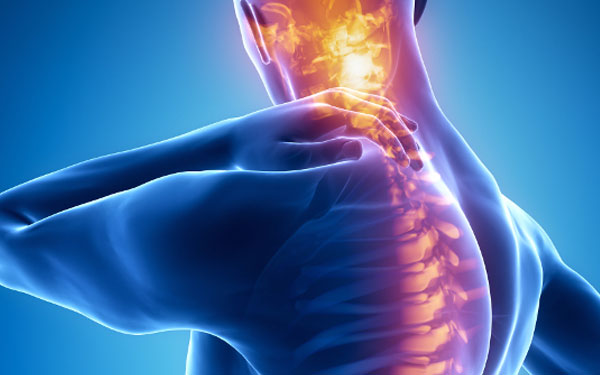
Neuropathic pain, a common complication of diabetes, arises due to damage to the peripheral nerves. This type of pain, known as diabetic neuropathy, can significantly impact quality of life. Effective management of neuropathic pain in diabetes requires a multifaceted approach, incorporating medication, lifestyle changes, and alternative therapies. This article explores the various treatment options available to manage neuropathic pain in diabetes.
Understanding Diabetic Neuropathy
What is Diabetic Neuropathy?
Diabetic neuropathy is a type of nerve damage that occurs in individuals with diabetes. High blood sugar levels over prolonged periods can injure nerves throughout the body, but diabetic neuropathy most often damages nerves in the legs and feet.
Symptoms of Diabetic Neuropathy
Symptoms can vary but commonly include:
- Burning Sensation: A persistent feeling of burning or tingling in the affected areas.
- Sharp, Jabbing Pain: Sudden, sharp pain that can feel like electric shocks.
- Sensitivity to Touch: Increased sensitivity, where even light touch can cause significant pain.
- Numbness and Weakness: Reduced sensation or muscle weakness in the affected limbs.
Treatment Options
Medications
Anticonvulsants
- Pregabalin and Gabapentin: These medications are commonly prescribed for neuropathic pain. They work by modulating nerve signals to reduce pain.
Antidepressants
- Amitriptyline and Duloxetine: Certain antidepressants can help relieve neuropathic pain by altering the way the brain perceives pain.
Pain Relievers
- Over-the-Counter Options: NSAIDs like ibuprofen can be used for mild pain relief, although they are generally less effective for neuropathic pain.
- Opioids: In severe cases, opioids may be prescribed, but they carry a risk of dependency and other side effects.
Topical Treatments
- Lidocaine Patches: These patches can provide localized pain relief by numbing the affected area.
- Capsaicin Cream: Derived from chili peppers, this cream can help reduce pain by depleting substance P, a pain-signaling neurotransmitter.
Lifestyle Changes
Blood Sugar Control
Maintaining optimal blood sugar levels is crucial in preventing further nerve damage and managing neuropathic pain. This can be achieved through:
- Diet: Eating a balanced diet low in sugars and refined carbs can help stabilize blood sugar levels.
- Exercise: Regular physical activity improves blood sugar control and can reduce neuropathic pain.
- Medication Adherence: Taking prescribed diabetes medications as directed by a healthcare provider.
Foot Care
Proper foot care is essential to prevent complications from diabetic neuropathy:
- Daily Inspections: Checking feet daily for cuts, blisters, or sores.
- Proper Footwear: Wearing well-fitting shoes to prevent foot injuries.
- Regular Podiatrist Visits: Regular check-ups with a podiatrist to manage foot health.
Physical Therapy
Physical therapy can help manage pain and improve mobility. Techniques include:
- Stretching and Strengthening Exercises: To maintain muscle strength and flexibility.
- Massage Therapy: To alleviate pain and improve circulation.
Alternative Therapies
Acupuncture
Acupuncture involves inserting thin needles into specific points on the body to alleviate pain. Some studies suggest it can be effective in managing neuropathic pain.
Transcutaneous Electrical Nerve Stimulation (TENS)
TENS uses low-voltage electrical currents to provide pain relief. It can be an effective non-pharmacological option for some individuals.
Supplements
Certain supplements may help manage neuropathic pain, although more research is needed:
- Alpha-Lipoic Acid: An antioxidant that may help reduce pain and improve nerve function.
- Vitamin B12: Essential for nerve health, and deficiencies can exacerbate neuropathy symptoms.
Psychological Support
Chronic pain can take a toll on mental health. Psychological support can include:
- Cognitive-Behavioral Therapy (CBT): Helps individuals develop coping strategies and manage pain-related anxiety or depression.
- Support Groups: Connecting with others who have similar experiences can provide emotional support and practical advice.
Emerging Treatments
Research is ongoing into new treatments for diabetic neuropathy, including:
- Gene Therapy: Investigating ways to repair or regenerate damaged nerves.
- Neurostimulation Devices: Implantable devices that provide electrical stimulation to modulate pain signals.
Conclusion
Managing neuropathic pain in diabetes requires a comprehensive approach that includes medication, lifestyle changes, physical therapy, and psychological support. By adopting a multi-faceted treatment plan, individuals with diabetic neuropathy can improve their quality of life and reduce the impact of pain on their daily activities.